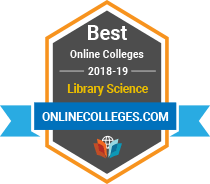Online Schools for Library Science
We’ve done the research and created comprehensive guides to online schools for library science. Continue below and dive into the details on library science degree programs, tuition and fees, related career outlooks, employable skills and much more.
May 02, 2018 | By OnlineColleges Editors
